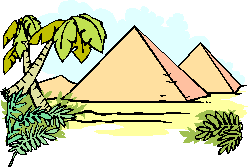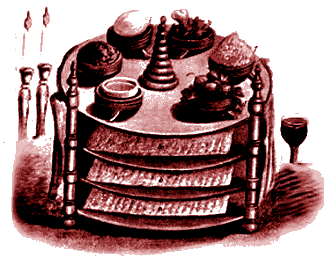The Principles of Faith

Over 30 commandments in the Torah exhort us to remember the Exodus, and numerous other passages mention it as well. Every Shabbat and Festival we mention the Exodus in our prayers. Even our calendar is based on it, as we count the months from the month of Nissan in which it occurred. Why does Judaism place so much emphasis on this particular event?
Many significant events in our history do not have nearly as many commandments devoted to them. The giving of the Torah on Mt. Sinai was certainly momentous, yet only one festival, Shavuot, marks it. The Jewish People's entry into the Land of Israel under Joshua's leadership was a milestone, yet no festival or command commemorates it.
So, again, what is so significant about the Exodus?
The first of the Ten Commandments begins: "I am Hashem, your G-d, Who has taken you out of the land of Egypt, from the house of slavery (Exodus 20:1-2). Rabbi Yehudah Halevi in "The Kuzari" cites the following Pagan King's question to the Rabbi: Why did G-d choose to introduce Himself as the one who "took you out of Egypt?" Why did He not introduce Himself by saying, "I am G-d who created heaven and earth, time, space, and all of reality itself?" Surely the latter is far more impressive than the Exodus, which is just an individual event pertaining to only one nation in all of history!?
To illustrate this question with an analogy, imagine meeting the architect who designed the Sydney Opera House. He introduces himself by saying, "Hi! I am Frank Lloyd Goldberg. I am the architect who remodeled Arthur's basement!"
Had Mr. Goldberg wanted to impress us with his credentials as an architect, he could have done a much better job.
Rabbi Yehudah Halevi answers that G-d wanted to introduce Himself in a way that was relevant, verifiable and within the experience of the people to whom He was speaking.
No one was present at the world's creation. The human mind cannot grasp the events of creation, and therefore the creation event itself is inaccessible to the human. The Exodus, on the other hand, demonstrated G-d's omnipotence as clearly as creation, yet it was witnessed by the entire Jewish People and experienced by them.
How does experiencing the Exodus give us knowledge of creation and of the principles of Jewish belief?
The Ten Plagues and the miracles of the Exodus showed G-d's complete control over nature. They showed that He was able to contravene, "ignore," and change the laws of nature at will.
Each plague distinguished between Jew and Egyptian, between the oppressed and the oppressor, demonstrating the existence of reward and punishment and Divine Providence.
Moshe predicted each plague, verifying the reality of prophecy. In addition, the plagues began and ended in response to the prayers of Moshe, showing us the power and efficacy of prayer.
The plagues' main purpose was not to expedite the release from Egypt; that could have been accomplished without the sound and light show. Their purpose was educational: They were what we would call today a "very high impact educational seminar." The plagues showed the Egyptians their mistakes, illustrating just how false their sense of superiority was, and punished them with the same suffering they had caused the Jews. The plagues impressed upon the Jewish People the basic principles of monotheism and Judaism, demonstrating that G-d's power was all-encompassing.
EXILE AS A UNIVERSAL THEME

Thus far, we've seen that the Exodus teaches the most basic ideas of Judaism. On a deeper level, the Egyptian Exile and the Exodus from it can be seen as the underlying theme of all creation:
Exile is a major theme in the Torah. Adam and Eve's exile from the Garden of Eden, Cain's exile, the varying degrees of exile the Patriarchs endured, the exile in Egypt and the four major exiles of Jewish history (Babylon, Persia, Greece and Rome) are all central themes throughout Tanach (Bible).
According to the Midrash, exile is already mentioned in the second verse in the Torah (Midrash Rabbah, Genesis 2:4), where the verse "The earth was desolate and void and there was darkness over the depths" (Genesis 1:2) is seen as referring to the Babylonian ("desolate"), Persian ("void"), Greek ("darkness") and Roman ("over the vast depths") exiles.
How can we understand this centrality of exile, and its existence at the very dawn of creation?
The great Kabbalist, Rabbi Yitzchak Luria (Arizal), explained that every human being on the face of the planet is indeed in exile (Likutei Ha'arizal, Exodus). Exile consists of three components:
- Being a stranger in a strange land
- Being enslaved to another
- Being separated from one's source and one's peers
These three components of physical exile are also present in the exile of the soul in this world. When the soul enters the physical world it experiences exile.
The soul, which is a spiritual entity, finds itself a "stranger in a strange land" in the world of time-space. It is subject to the limitations of the physical dimensions and its perception is no longer spiritual and therefore no longer unlimited.
The soul is also to a great degree a slave. It is enslaved to its host, the physical body. The body has to sleep, eat and engage in many other physical activities in order to survive. The whims and desires of the body, while not evil in and of themselves, are distracting and unnecessary burdens from the soul's point of view. The physical necessities of life are, to the soul, "crushing labor."
And the soul is lonely. It is separated from its source, G-d, by the concealment of the physical world, and it is separated from its kindred souls by the concealment of the body. Souls in this world are "scattered and separate."
A person sensitive to the spiritual side of the self will be aware of the exile of the soul; he will feel something lacking in a purely materialistic life.
What of the person who is less sensitive? How can he understand and empathize with the soul? The best way for the person to be able to relate to the exile of his soul is by experiencing exile personally. For one person it is sufficient to be a stranger in his own land to understand and identify with the suffering of the soul. A less sensitive person may need to be exiled to a foreign land. If he "gets the hint" then he can merit redemption. If not, the hint has to be made more explicit. He may have to experience separation from family and friends before he learns his lesson; he may even have to experience slavery, degradation and crushing labor before he understands what it means to be in exile.
Exile is not, then, punishment for sin; it is a method of teaching the person what his soul is experiencing. We are indeed all in our own "Egypts," awaiting redemption.
In light of this, we can see a new dimension in the mitzvot, the commandments of the Torah: The mitzvot are the mechanism of redemption for the soul's exile.
 The mitzvot that sanctify time and space, such as Shabbat, the Festivals, the Temple and the Land of Israel, enable the soul to find infinity in the finite and spirituality in the unfamiliar environment of the physical world.
The mitzvot that sanctify time and space, such as Shabbat, the Festivals, the Temple and the Land of Israel, enable the soul to find infinity in the finite and spirituality in the unfamiliar environment of the physical world.
The mitzvot that refine the body, transforming it into a willing partner of the soul, free the soul from the body's "enslavement." Dietary laws, family purity laws, and Torah study refine the body, the desires and the intellect. The body thus trained will not be a dominating master of its "slave," the soul. Such a body will be perceptive of the spiritual, and its desires will be those of the soul. There will be no subjugation, only a harmonious and powerful synergy of the physical and the spiritual.
Other mitzvot, those classified as "between man and his friend," cultivate and promote the unity of one soul with its companions. The mitzvot of love of a fellow Jew, tzedakah, chesed, and the like reunite the soul with other souls even though they are separated by the physical. Prayer, the Temple services, and mitzvot that unite us with our Creator solve the problem of the soul's separation from its source.
The emphasis on the Exodus from Egypt in so many mitzvot stresses the idea that the world is one great, lengthy exile awaiting redemption. Each of us is in some form of "Egypt" until we experience our own personal Exodus. The entire world is in Exile until the coming of the Mashiach.






